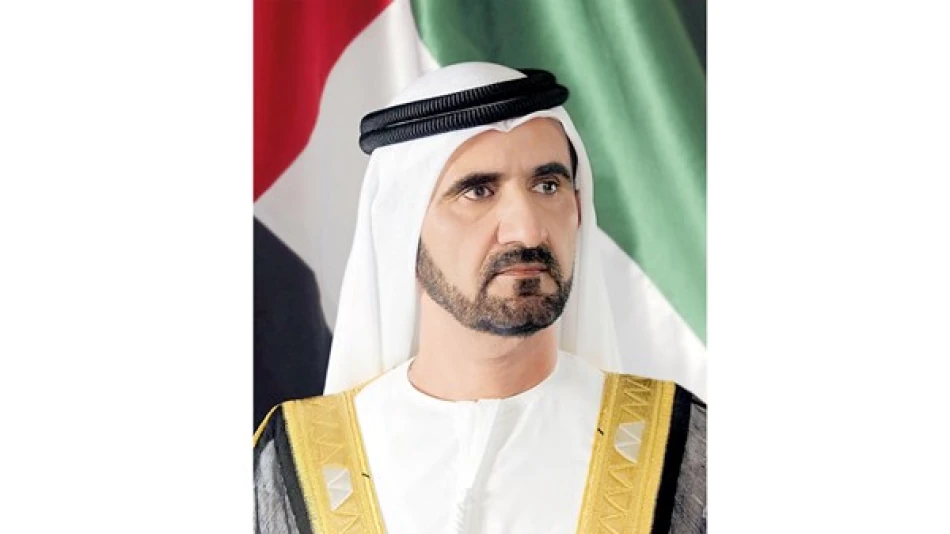
Dubai's Sheikh Mohammed Pens Life Lessons in New Book 'What Life Taught Me'
Dubai Ruler Pens Leadership Memoir After Six Decades in Public Service
Sheikh Mohammed bin Rashid Al Maktoum, Dubai's ruler and UAE Vice President, has distilled nearly 60 years of leadership experience into a new book titled "Life Has Taught Me." The memoir reflects on governance, human nature, and strategic management from one of the Middle East's most transformative leaders, offering rare insights into the philosophy behind Dubai's meteoric rise as a global business hub.
A Lifetime of Public Service Condensed
Writing on social media platform X, Sheikh Mohammed revealed his motivation for the book: "In a few years, I will complete 60 years in public service... 60 years of governing people, politics of governance, and the politics of life." The ruler described these decades as passing quickly, filled with "challenges, achievements, crises, joys, sorrows, and surprises."
The memoir tackles fundamental questions of leadership: What has he learned about governance? How does one manage people with their varying temperaments and rapidly changing psychology? What insights has he gained about management strategies, project tactics, and the intricacies of politics?
Focus on Philosophy Over Achievements
Unlike typical political memoirs that catalog accomplishments, Sheikh Mohammed deliberately chose a different approach. He emphasized wanting the book to be "simple in its words, frank in its expressions, and truthful in its meanings, so it reaches from heart to heart."
The strategic focus centers on human experience rather than infrastructure projects. "I tried to focus on ideas, concepts, and principles rather than projects and achievements, because ideas are more enduring, concepts are more comprehensive, and principles are greater," he explained.
Lessons for Modern Leadership
This philosophical approach reflects a broader trend among successful leaders who recognize that sustainable impact comes from transferable wisdom rather than tangible accomplishments. While Dubai's transformation under Sheikh Mohammed's leadership—from a modest trading port to a global financial center—speaks volumes, his emphasis on underlying principles suggests a deeper understanding of what creates lasting change.
Strategic Timing and Global Relevance
The book's release comes at a pivotal moment for the UAE and the broader Middle East. As the region navigates economic diversification, geopolitical shifts, and technological transformation, insights from a leader who has successfully managed such transitions for decades carry particular weight.
For business leaders and policymakers globally, the memoir offers a unique perspective on balancing rapid modernization with cultural preservation—a challenge facing many emerging economies. Sheikh Mohammed's approach to governance has consistently emphasized pragmatic innovation while maintaining stability, a model increasingly studied by other developing nations.
Legacy and Knowledge Transfer
The ruler's closing remarks reveal the book's intended audience: "Today I write these words for myself first, for my children and my people second, and for all who want to learn even a word, phrase, or line from my life." This multi-tiered approach—personal reflection, family legacy, national guidance, and global knowledge sharing—positions the memoir as both intimate autobiography and leadership handbook.
The emphasis on knowledge transfer reflects a broader regional trend where founding leaders of modern Gulf states are documenting their experiences for future generations. As these nations transition from founder-led governance to institutional frameworks, such documented wisdom becomes crucial for maintaining continuity and vision.
A Template for Sustainable Leadership
Sheikh Mohammed's focus on principles over projects may offer valuable insights for leaders navigating an era of rapid change. In a world where technological disruption and global uncertainty challenge traditional governance models, the emphasis on enduring concepts rather than specific achievements provides a more adaptable framework for future decision-making.
Most Viewed News

 Layla Al Mansoori
Layla Al Mansoori






